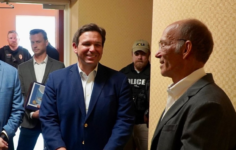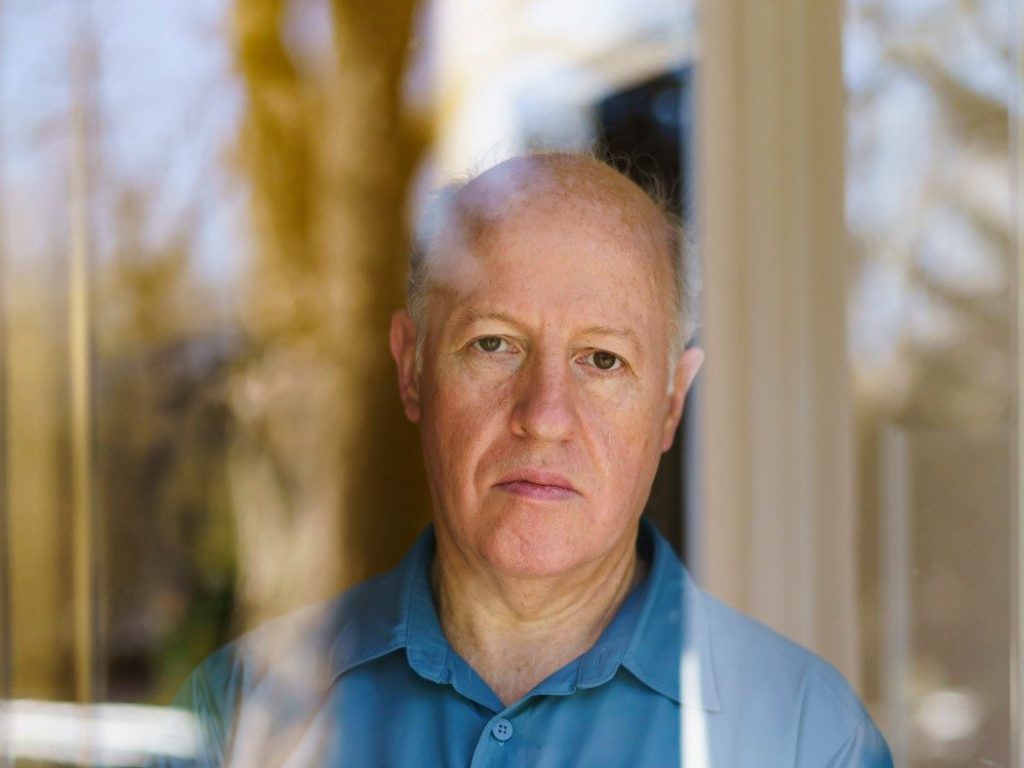Over the course of the past century, a number of truly awe-inspiring heists have been carried out by con artists, whose modus operandi is to exploit human frailties such as credulity, insecurity and greed. Con is short for confidence, for the con artist must first gain the trust of his targets, after which he persuades them to hand their money over to him. A con job differs from a moral transaction between two willing, fully informed trading partners because one of the partners is deceived, and deception constitutes a form of coercion. In other words, the person being swindled is not really free. If he knew what was really going on, he would never agree to invest in the scheme.
by | Jun 22, 2021/
The “Ponzi scheme” was named after Charles Ponzi, who in the 1920s persuaded investors to believe that he was generating impressive profits by buying international reply coupons (IRCs) at low prices abroad and redeeming them in the United States at higher rates, the fluctuating currency market being the secret to his seemingly savvy success. In reality, Ponzi used his low-level investors’ money to pay off earlier investors, support himself, and expand his business by luring more and more investors in. More recently, Bernie Madoff managed to abscond with billions of dollars by posing as an investment genius who could deliver sizable, indeed exceptional, returns on his clients’ investments.
It is plausible that at least some of the early investors in such gambits, who are paid as promised, suppress whatever doubts may creep up in their minds as they bask in the splendor of their newfound wealth. But even those who begin consciously to grasp what is going on may turn a blind eye as the scheme grows to engulf investors who will be fleeced, having been persuaded to participate not only by the smooth-talking con artist, but also by the reported profits of previous investors. Eventually, however, the house of cards collapses, revealing the incredible but undeniable truth: there never were any investments at all. No trading ever took place, and all of the company’s transactions were either deposits or withdrawals of gullible investors’ cash.
Before a con artist is unmasked, nearly everyone involved plays along, either because they stand to gain, or because they truly believe. Sometimes the implications of having been wrong are simply too devastating to admit, and these same psychological dynamics operate in many other realms where most people would never suspect anything like a Ponzi scheme. It is arguable, for example, that the continuous siphoning of U.S. citizens’ income to pay for misguided military interventions abroad constitutes a form of Ponzi scheme. If President George H. W. Bush had never used taxpayers’ dollars to wage the First Gulf War on Iraq in 1991 and to install permanent military bases in the Middle East, then Osama bin Laden would likely never have called for jihad against the United States. If the U.S. military had not invaded Iraq in 2003, then ISIS would never have emerged and spread to Syria and beyond. Such implications are deeply unsettling, and even in the face of mounds of evidence, most people prefer to cling to the official story according to which the 1991 Gulf War was necessary and just, while the terrorist attacks of September 11, 2001, were completely unprovoked, and all subsequent interventions a matter of national self-defense.
The series of bombing campaigns in the Middle East beginning in 1991 are plausibly regarded as a type of Ponzi scheme because the “investors” (taxpayers), have actually paid to make themselves worse, not better, off. Not only have the “blowback” attacks perpetrated in response to U.S. military intervention abroad killed many innocent persons, but the lives of thousands of soldiers have been and continue to be wrecked through dubious deployments abroad. Along with all of the blood spilled, much treasure has been lost. The more than $28 trillion national debt (as of June 2021) is due in part to the massive Pentagon budget, rubber-stamped annually by Congress, to say nothing of the many other “discretionary” initiatives claimed to be necessary in national defense. Afghanistan is a perfect example of how billions of taxpayer dollars continue to be tossed into the wind even as the formal U.S. military presence winds down. The reason why the War on Terror continues on is not because it is protecting the citizens who pay for it or helping the people of the Middle East but because it has proved to be profitable to persons in the position to influence U.S. foreign policy.
One might reasonably assume that anyone who stands to enrich himself from government policies should be excluded from consequential deliberations over what ought to be done, and in certain realms, the quite rational concern with conflict of interest still operates to some degree. With regard to the military, however, there has been a general acquiescence by the populace to the idea that because only experts inside the system are capable of giving competent advice, they must be consulted, even when they will profit from the policies they promote, such as bombing, which invariably increases the value of stock in companies such as Raytheon. Throughout history, there has always been a push by war profiteers to promote military interventions, but Dick Cheney, who served as Secretary of Defense under George H.W. Bush and vice president under his son, George W. Bush, took war profiteering to an entirely new level. By privatizing many military services through the Logistics Civilian Augmentation Program (LOGCAP), Cheney effectively ushered in a period of war entrepreneurialism, beginning with Halliburton (of which he was CEO from 1995-2000), which continues on today, making it possible for a vast nexus of subcontractors to profit from the never-ending War on Terror, and to do so in good conscience. When more people have self-interested reasons for supporting military interventions, then they become more likely to take place.
With the quelling of concerns that conflict of interest should limit the persons who advise the president on matters of foreign policy, the formal requirement that the secretary of defense be not a military officer but a civilian has been effectively dropped, with both James Mattis and Lloyd Austin easily confirmed as “exceptions” to the rule, despite the fact that, not only did both have significant financial interests in promoting war, but each also had a full career in the military before retiring and being invited to lead the DoD. Military men are inclined to seek military solutions to conflict, which is undoubtedly why high-ranking officers are invited to join the boards of military companies, making Mattis and Austin textbook examples of “revolving door” appointments.
Arguably even more ruinous to the republic in the longterm than the rampant conflict of interest inherent to “revolving door” appointments between the for-profit military industry and the government has been the infiltration of the military into academia, with many universities receiving large grants from the Defense Department for research. Academia would be a natural place for intellectual objections to the progressive militarization of society, but when scholars and scientists themselves benefit directly from DoD funds, they have self-interested reasons to dismiss or discredit those types of critiques—whether consciously or not—in publishing, retention and promotion decisions. In addition to the institutional research support provided by DARPA (the Defense Advanced Research Projects Agency), successful academics may receive hefty fees as consultants for the Pentagon and its many affiliates, making them far more likely to defend the hegemon than to raise moral objections to its campaigns of mass homicide euphemistically termed “national defense”.
As a result of the tentacular spread of the military, Cui bono? as a cautionary maxim has been replaced by Who cares? People seem not at all bothered by these profound conflicts of interest, and the past year has illustrated how cooption and corruption may creep easily into other realms as well. Indeed, there is a sense in which today we have two MICs: the military-industrial-complex and, now, in the age of Covid-19, the medical-industrial-complex. This latter development can be viewed, in part, as a consequence of the former, for in recent decades the military industrial complex has sprouted tentacles to become the military-industrial-congressional-media-academic-pharmaceutical-logistics banking complex. Long before Covid-19 appeared on the scene, the Veterans Administration (VA) adopted pro-Big Pharma policies, including the prescription of a vast array of psychotropic medications in lieu of “talk therapy” to treat PTSD among veterans and to preemptively medicate soldiers who expressed anxiety at what they were asked to do in Afghanistan and Iraq. The increase in the prescription of drugs to military personnel generated hefty profits for pharmaceutical firms, allowing them to expand marketing and lobbying efforts to target not only physicians but also politicians and the populace.
Since the initial launch of Prozac in 1986, the pharmaceutical industry has become an extremely powerful force in Western society, made all the more so in the United States when restrictions on direct-to-consumer advertising were lifted by the Food and Drug Administration (FDA) in 1997. Already by 2020, about 23% of Americans (nearly 77 million out of a population of 331 million) were taking psychiatric medications, and those numbers appear to have increased significantly during the 2020 lockdowns, which took a toll on many people’s psychological well-being. As medications are prescribed more and more throughout every sector of society, drug makers exert a greater and greater influence on policy, even as the heroin/fentanyl overdose epidemic, caused directly by the aggressive marketing and rampant overprescription of opioid painkillers, continues on.
Just as the military industry is granted the benefit of the doubt on the assumption that they are helping to protect the nation, the pharmaceutical industry accrues respectability from its association with the medical profession. Who, after all, could oppose “defense” and “health”? In reality, however, for-profit weapons and drug companies are beholden not to their compatriots, nor to humanity, but to their stockholders. War and disease are profitable, while peace and health are not. The CEOs of military and pharmaceutical companies, like all businesspersons, seek to ensure that their profits increase by all means necessary, the prescription opioid epidemic being a horrific case in point. Just as academics may enjoy Defense Department funding, many doctors and administrators of medical institutions today derive essential funding from drug companies and the government, whether directly or indirectly. These connections are immensely important because many politicians receive generous campaign contributions from Big Pharma, which by now has more lobbyists in Washington, DC, than there are congresspersons, and not without reason. Formulary decisions at the VA regarding the appropriateness of prescribing, for example, dangerous antipsychotic medications such as Astrazeneca’s Seroquel to soldiers as sleep aids are made by administrators who are political appointees, as are public health officials more generally.
With a functional Fourth Estate, it would be possible to question if not condemn the conflicts of interest operating in the for-profit military and medical realms. Unfortunately, however, we no longer have a competent press. Throughout the Coronavirus crisis, this has become abundantly clear as alternative viewpoints on every matter of policy have been squelched, suppressed, and outright censored in the name of the truth, when there may have been ulterior motives at play. In fact, the complete quashing of any directives regarding non-vaccine therapies for mitigating the effects of Covid-19—including Ivermectin and Hydroxychloroquine—may be best explained by the simple fact that FDA emergency use authorization of vaccines in the United States is possible only when “there are no adequate, approved, and available alternatives,” as is stated plainly on the specification sheets for the Pfizer and Moderna vaccines.
Regarding the origins of the virus, early claims by some researchers that Covid-19 may have been produced in the virology lab in Wuhan and released accidentally were swiftly dismissed as “conspiracy theories.” Anyone who suggested this eminently plausible origin of the virus was immediately denounced by the media and deplatformed or censored by the big tech giants. “Gain-of-function” research, often funded by the military, involves making existent viruses deadlier to human beings and is said by its proponents to be necessary in order to be prepared for future natural pandemics or in the event that some enemy might use such a virus as a bioweapon. The latter is a familiar line of reasoning among military researchers, invoked also (mutatis mutandis) in nuclear proliferation and the military colonization of space: we must develop the latest and greatest nuclear bombs and effect total spectrum domination of the galaxy before any other government has the chance to do so! Many of the scientists involved in these endeavors may have the best of intentions, but that does nothing to detract from the propensity of human beings to commit errors.
In the case of Covid-19, the origin of the virus was deemed settled because Dr. Anthony Fauci, an ardent apologist for gain-of-function research and the reigning public health guru in the United States, authoritatively insisted that the transition from bats to humans came about naturally. After Fauci’s pronouncement, it seemed a matter of common knowledge to “right-thinking” believers in The ScienceTM everywhere that the virus probably came from the wet market in Wuhan, where live animals were sold as ingredients for use in culinary delicacies such as bat soup. When the World Health Organization (WHO) looked into the matter, they appointed Peter Daszak to lead the investigation. But Daszak had in fact funded gain-of-function research by repackaging and distributing U.S. government funds through his firm EcoHealth Alliance. Needless to say, Daszak had every reason in the world to squelch any suggestion to the effect that he himself may have had something to do with the millions of deaths caused by Covid-19.
We do not yet know whether the virus had a natural or manmade origin, but if in fact U.S. taxpayer-funded research caused the pandemic and millions of deaths, then this would constitute yet another example of a government-perpetrated Ponzi scheme, rivaling and perhaps even surpassing the War on Terror in its negative consequences. We pay for gain-of-function research (determined by bureaucrats such as Anthony Fauci to be a good idea), and then we suffer the consequences when things go awry. Note that, just as Ponzi scheme perpetrators may begin as regular businesspersons before committing fraud, there is no need in the case of Covid-19 to invoke conspiratorial hypotheses. Many politicians who promoted and thereby helped to realize the 2003 invasion of Iraq may have been convinced that Saddam Hussein posed a grave danger to the world. Similarly, there may not have been a conscious intention on the part of anyone to let loose the SARS-CoV-2 (Covid-19) virus on the world. After all, it’s not as though incompetence among government bureaucrats is a rarity.
Whether accidentally or intentionally caused, disasters invariably pave the way for massive power grabs on the part of select persons advantageously situated. Once Iraq had been invaded, this served as the pretext for sacrificing even more blood and treasure as the quagmire intensified and spread to other countries. When the Covid-19 virus arrived on the scene, it became the pretext for a massive and abrupt transfer of wealth. Not only did much of the commerce of small businesses crushed by lockdowns migrate to companies such as Amazon and Walmart, but billions of taxpayer dollars have been poured into pharmaceutical firms.
The multi-trillion dollar Covid-19 aid packages included provisions for research and development, testing, and hospitals. But the most lucrative venture in all of this frenzy has been a vaccine program with universal aspirations. The U.S. government funded the development of the Covid-19 vaccines, and now that they exist, President Biden has purchased 500 million more doses of the Pfizer product to donate to other countries. The global propaganda campaign to vaccinate everyone everywhere with elixirs touted initially by their developers as having up to 95% efficacy, too, has been paid for by governments. It was unclear from the initial press releases about the spectacular new vaccines what efficacy actually meant, as there was a fair amount of equivocation regarding whether the treatments would confer immunity and prevent transmission of the disease or simply lessen the severity of symptoms. After millions of persons had already been vaccinated, it emerged that the reports of 95% efficacy were at best misleading and at worst fraudulent, for the reported percentages were relative risk reduction (RRR) rates, which reflect outcomes only for the small proportion of the population vulnerable to the disease. When the rates are calculated for the general population, the vast majority of whom are not vulnerable to Covid-19, it turns out (as those who declined the vaccine had already surmised on the basis of the survival statistics), that the absolute risk reduction (ARR) rates of the Pfizer, Moderna, Astra Zeneca, and Johnson & Johnson vaccines are quite low, to be precise: 0.84%, 1.2%, 1.3%, and 1.2%, respectively. Nonetheless, aggressive campaigns to require vaccine passports of citizens as a condition on their resumption of normal life are everywhere on display.
A clue that the well-being of patients is not at the forefront of the minds of those running the “vaccine everyone” campaign has been the encouragement of pregnant women and children to undergo vaccination, though neither group is at serious risk from the virus and neither group was included in the trials used to secure emergency authorization. Even more remarkably, against all established science on immunology, the idea that persons who have already recovered from the disease must also “get the jab” has been aggressively promoted all around the globe. Judging by the media coverage, the reason for insisting that persons who were already infected with and have recovered from Covid-19 must also be vaccinated is supposed to be that people can become reinfected with the virus. That line of reasoning, however, is refuted by the statistics for reinfection. As of June 2021, out of nearly 180 million cases of Covid-19 worldwide, there were 148 confirmed cases of reinfection. Studies recently published in Nature and by the Cleveland Clinic conclude that vaccination offers no benefit to previously infected persons.
In the build up to every new war, many people who do not stand to benefit from the intervention and may even be harmed by it often succumb to the propaganda and enthusiastically take up the cause. In the current crisis, the false dichotomization into two exhaustive and mutually exclusive categories, the enlightened science lovers and the anti-vaxxers, is also a part of a propaganda campaign. The persons who have declined vaccination, either because they already survived Covid-19, or because they prefer to wait for longterm safety data and do not believe that the possible benefits outweigh the unknown risks, are dismissed as crackpots, when in fact they are simply being prudent. Yet the media persists in propagating a misleading depiction of vaccine hesitancy in this specific case as proof of hostility toward science. This sort of polarization of the populace is, needless to say, on display during wartime as well, when anyone who dares to oppose a military intervention is depicted as a supporter of a tyrant abroad or an irrational pacifist or, when all else fails, a simple traitor.
It would be incredibly naïve to fall prey to the idea that pharmaceutical executives are somehow philanthropic, for they command enormous salaries for maximizing their stockholders’ profits. In 2020, Pfizer CEO Anthony Bourla enjoyed a 17% increase in compensation, to $21 million, while Moderna’s CEO, Stéphane Bancel, became a billionaire. The pharmaceutical industry and the military industry, despite comprising publicly traded companies, are prime examples of “crony capitalism”, benefiting as they do from large infusions of cash from the government, which is allocated by bureaucrats many of whom have career and other financial interests at stake. Moreover, the funding links between the military and the public health and pharmaceutical sectors form a tangled web. Not only did the Department of Defense receive a chunk of the Covid-19 rescue packages, but gain-of-function research has been paid for by military institutions. Indeed, much of the funding provided to Peter Daszak for redistribution by EcoHealth Alliance derived from the U.S. Department of Defense.
Both the for-profit military and for-profit pharmaceutical industry now use the mainstream media as a propaganda outlet to further the interests of their shareholders. Even the independent media have been infiltrated by pro-military and pro-pharma voices, which is why falsehoods such as “Saddam is in cahoots with Bin Laden and has WMDs!” and “Lockdowns save lives!” are able to gain such traction among the populace. That liberty-restricting policies should be lifted only on the condition of vaccination requires people to believe that the mediation policies were both necessary and effective. But in the United States, the differences in outcomes in various states do not appear to depend on the timing or extent of lockdowns. Nonetheless, just as the mass surveillance and collection of people’s private data was accepted by many as a necessary part of the War on Terror, many persons with no financial interests at stake now rally on behalf of Big Pharma for universal vaccination.
The global propaganda campaign to require people to show health papers or a “vaccine passport” in order to participate in human society—to travel, dine out, shop or even gather together in groups—reveals that the mistakes made by a few actors are being seized upon to exert more and more control over the population. The mass surveillance of Americans was accepted by many as necessary, given the potential dangers of factional terrorism, and now, having spent more than a year whipped up by the media into a paralyzing state of fear for a virus which kills less than 1% of the persons it infects, many citizens appear willing to accept what influential globalists have been insisting must be “the new normal”. This is a grave mistake.
It is too early to know how this unprecedented chapter in human history will end, but the trends are not encouraging. With countries continuing their serial lockdowns, travel restrictions, masking, testing, and quarantine requirements, they deepen the divisions already on display making it seem more likely that some form of apartheid state with totalitarian qualities will emerge. Does any government have the right to force its citizens to undergo a medical treatment for which, according to all available statistical data, they have no need? Why are universities requiring vaccination as a condition of enrollment and employment? Why are more doctors not rising up to challenge the aggressive push to vaccinate everyone everywhere with an experimental treatment? There is no medical basis whatsoever for requiring previously infected persons to undergo vaccination, which has never been demanded in the case of any other disease.
What is at stake is not merely inconvenience, and the solution is not, as some liberty lovers have suggested (if only facetiously), to acquire a forged vaccine passport. We should reject in the most categorical of terms the very idea that anyone anywhere should be required to prove his health status to anyone else and that anyone anywhere should be compelled to undergo a medical treatment against his own will—whatever his reasons may be. One’s medical choices affect one’s health, well-being and body, which no government can be said to own. To relinquish one’s right to one’s own body is to render oneself the property of a tyrannical state. If citizens permit the government to strip them of their right to make decisions about how to lead their very own lives, then they will have been fleeced far worse than the victims of the most mercenary Ponzi scheme, having paid with their freedom for their future enslavement.











